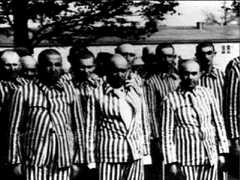By Tamara Winfrey Harris
That he would feel this way made me want to cry. How did this black child, a student in an excellent school system; grandchild of two educators; great-great-great-grandchild of a man who—less than 20 years after his emancipation had taught himself to read and purchased land that remains in the family to this day—this boy with an aunt who spends time writing about race for places like Change.org: How could he come by such beliefs? And yet he truly believed that African-American people have no history, and that we've made no contributions to this country. If he could think this, I can only wonder what the other students in his mostly-white school think as well.
Could it be that my nephew and his classmates have been stunted by the standard, white-centric version of American history, taught in all but the most diligent of schools? I'm talking about a history that's mostly aimed at students of a particular ethnic group, one that advocates ethnic solidarity instead of the treatment of students as individuals. But wait—isn't that the very same language Arizona is using to justify a ban on ethnic studies? Why, yes—yes it is. Ironically, by banning ethnic studies, HB 2281 advances the very phenomenon it purports to end.
My nephew Kyren says he notices that, save a day or two around MLK Day, the contributions of people like him are ignored in history class. He and his classmates learn about the rich cultures and achievements of people of European descent, but little else. Meanwhile, the story of African-Americans proceeds like this: 1). Slavery, 2). Civil rights, 3). The end.
HB 2281 advocates don't seem to realize that the history of people of color in the United States involves more than just strife and oppression. Would it breed "resentment" to talk about Navajo code talkers in World War II? Or to recognize that Crispus Attucks, a mixed-race man, was the first martyr of the American Revolution? Or to study Chinese-Americans' role in building the Trans-Continental Railroad? Is it somehow damaging to read Zora Neale Hurston alongside Ernest Hemingway?
An American history class that does not sufficiently cover the stories of all Americans is not teaching American history. Any American of color who has ever sat in a classroom and felt invisible knows this. Ethnic studies classes seek to create balance in what is largely an unbalanced education.
As one Tucson High junior told KGUN-TV, such classes "have made me think in ways that other classes don't, they have taught me about my culture as well as American culture, they do not promote hate."
The problem is that "normal" history classes aren't neutral and unbiased. They teach a Eurocentric version of history based on the accomplishments of white Christian males. Unthinking adults may not get it, but a child can see that these classes exclude people of color.
In other words, the problem isn't that the new classes are divisive. It's that the old classes are divisive. They divide the world into whites, who have their "greatness" frequently affirmed, and nonwhites, who don't.
Ethnic studies classes don't seek to divide students by race. They seek to end the divisions caused by whites-first history. When everyone's history is acknowledged and studied, then no one has to feel excluded. No one has to cry over being a second-class citizen in school.
Mainstream history = white history
The anti-ethnic studies argument is a perfect example of white privilege in action. White people don't see the bias in history classes centered around whites. To them, this is a fair and balanced take on the past. It's objective reality. For some reason, whites are better than other races, so it's "natural" to focus on them.
This is the same mentality that says it was America's Manifest Destiny to rule the continent. That Native defeat was inevitable (no, it wasn't). That Western civilization gave us cars, television, computers, McDonald's, and Paris Hilton but somehow didn't give us slavery, Marxism, Nazism, nuclear warfare, or the Holocaust.
"Objective reality" means teaching everything that happened, not merely the pro-white propaganda that touts Columbus, the Pilgrims, and the Founding Fathers. I.e., that excludes the contributions of women and minorities. Those who favor ethnic studies and multiculturalism are the true proponents of reality.
For more on the new law, see Arizona Laws Target the Indigenous and Native Lit Class Threatens Arizona. For more on the subject in general, see The Myth of Western Superiority and This Ain't No Party, This Ain't No Disco: A Columbus Day Rant.
Below: White history.



